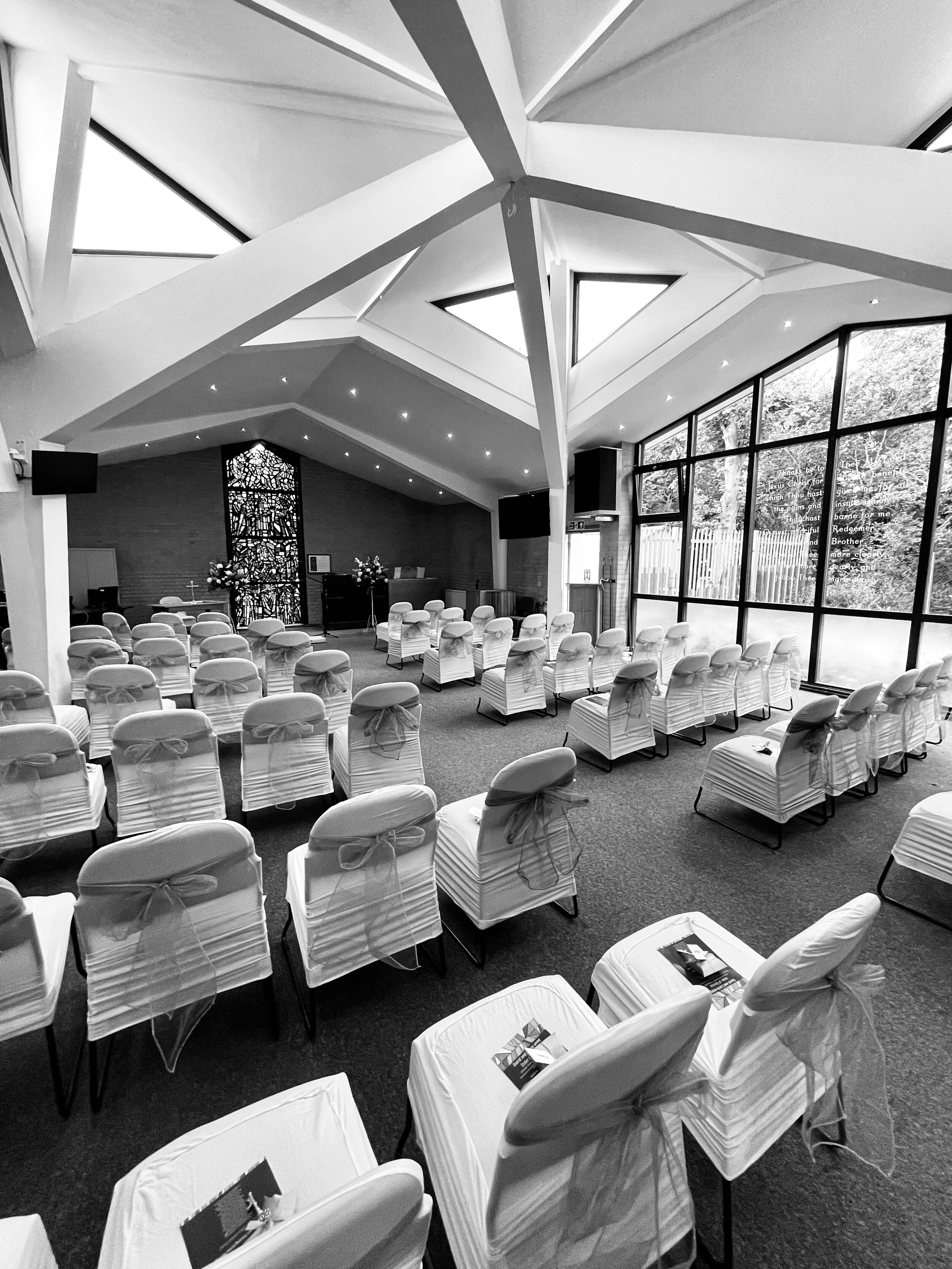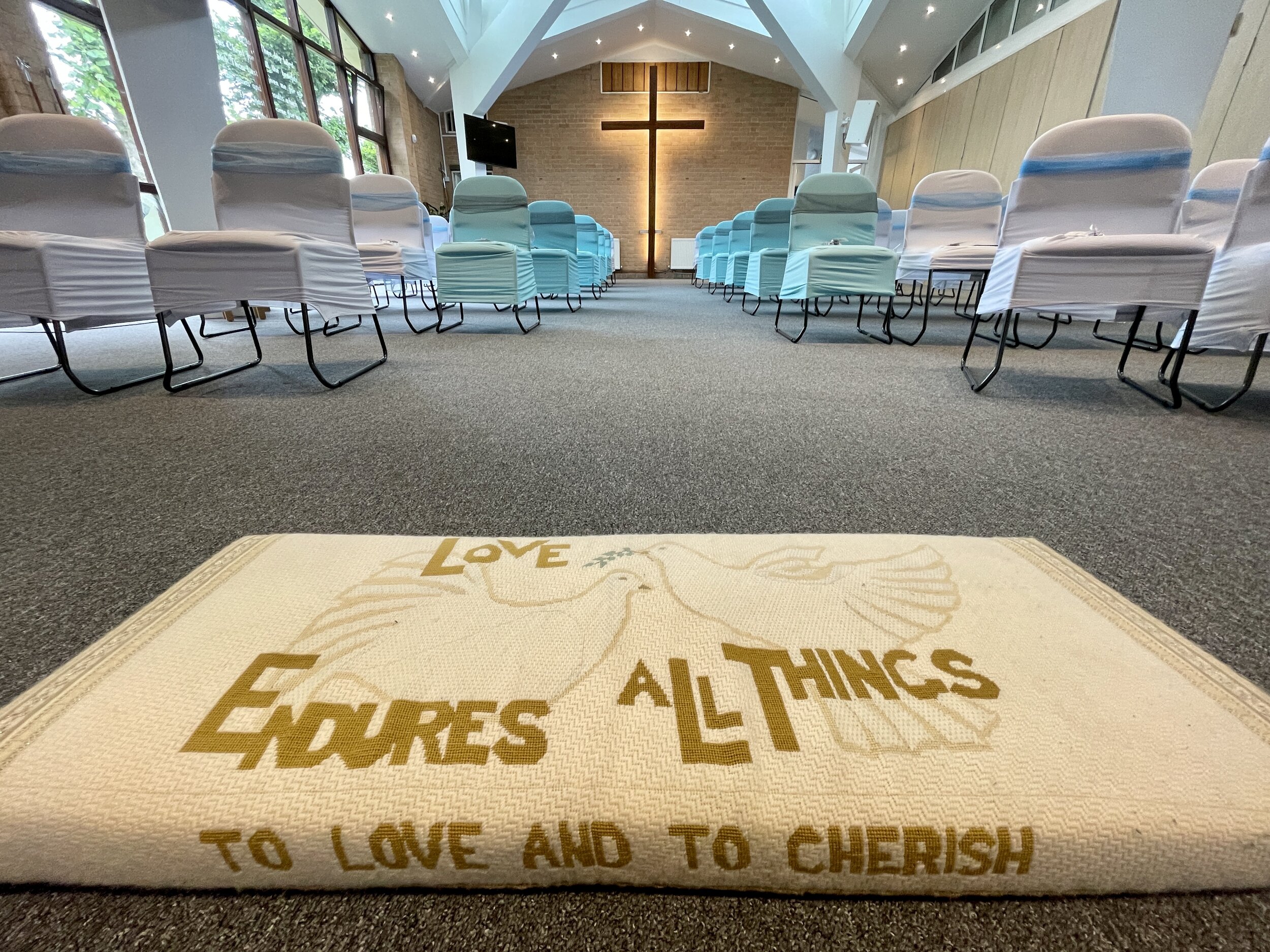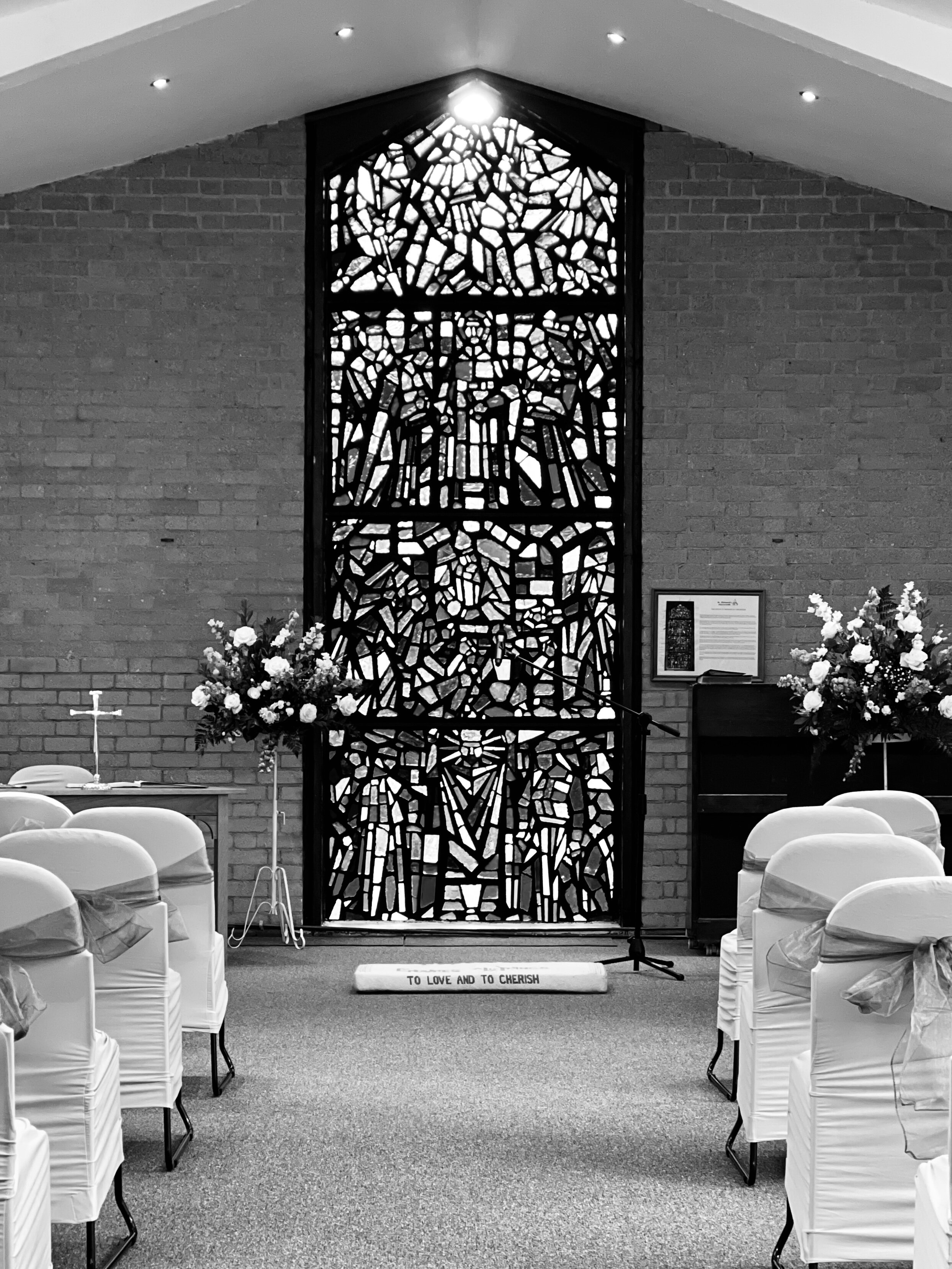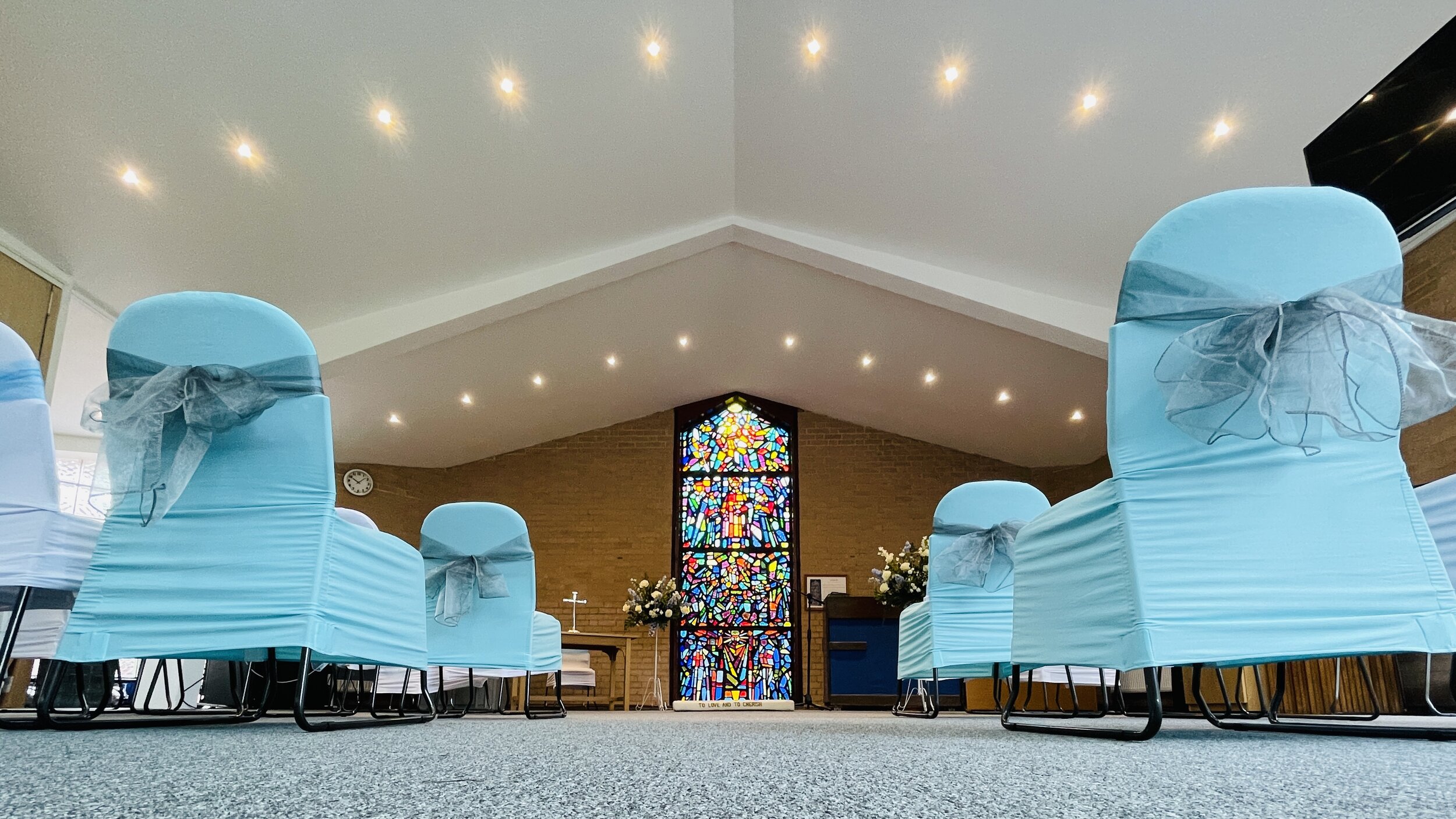A Church Wedding
Churches are special and unique places to get married in - the prayers, promises and the whole service of celebration become part of your marriage, on the day itself and beyond. The ceremony includes God and looks to him for help and guidance. God’s blessing is the main attraction for many couples, whatever their beliefs.
You can make amazing vows, or promises, in a church. These vows, made in public, will help you to stay together and grow together. More than that - God and your church are there for you to help you keep your vows.
The Vicar has a very particular role to play in your wedding. They can blend ancient tradition and modern experience to reflect your story. Because of the relationship with the Vicar, your wedding can be made personal, memorable, meaningful and beautiful.
For some people, a church simply seems like the proper place to get married. At St Richard’s, we can’t offer you a historic or particularly beautiful building, but it is a holy place in which God’s presence has been experienced for over 50 years. For many people the history, peace and serenity of a church makes marrying there a particularly special experience.
These are just some of the reasons why a church is more than simply a wedding venue. It’s also a community who promise always to be here for you. Talk to Debs, our vicar, to find out more, or visit the Your Church Wedding website.
Can I Have a Church Wedding?
It is both a privilege and a duty for your vicar to join a man and a woman in marriage. The good news is that you can marry in church regardless of your beliefs, whether or not you are christened and whether or not you have been a regular churchgoer.
Because getting married gives you a whole new legal status with many benefits, there are considerations for the vicar to make in both UK civil and church law. You can find out more about the basic legal requirements here.
Can I Marry at St Richard’s?
You can marry in a particular Church of England church if you can show that one of you:
has at any time lived in the parish for a period of at least 6 months, or
was baptized (christened) in the parish concerned, or
is confirmed and your confirmation was entered in the register of confirmations for that church, or
has at any time regularly gone to normal church services in the parish church for a period of at least 6 months
Or, that one of your parents, at any time after you were born:
has lived in the parish for a period of at least 6 months, or
has regularly gone to normal church services in the parish church for a period of at least 6 months
Or, that one of your parents or grandparents:
was married in the parish
Same-Sex Couples
Currently, the law prevents ministers of the Church of England from carrying out same-sex marriages. And although there are no authorized services for blessing a same-sex civil marriage, we can still support you with prayer.
If this is you, please know that St Richard’s is still here for you. If you need a place to connect with God, worship, give thanks and join others in learning about the Christian faith, you will be very welcome.
Foreign Nationals
If you are from a country that is outside the European Economic Area, having a Church of England wedding will involve some different paperwork and there will be a number of things the minister will want to talk to you about.
The law regarding marriages of nationals from outside the EEA changed in 2015. All such marriages which take place in England must have a Superintendent Registrar’s Certificate (SRC) to go ahead. Talk to Debs, our vicar, to find out more.
Marriage After Divorce
If one or both of you are divorced, there may be a way for you to marry in church, but you will need to talk to your vicar as soon as possible.
The Church understands marriage to be a permanent bond between a man and woman, but it also recognizes that some marriages do fail for all sorts of sad and painful reasons. So in certain circumstances the Church of England accepts that a divorced person may marry again in church.
The first step is to make an enquiry with Debs, our vicar.






